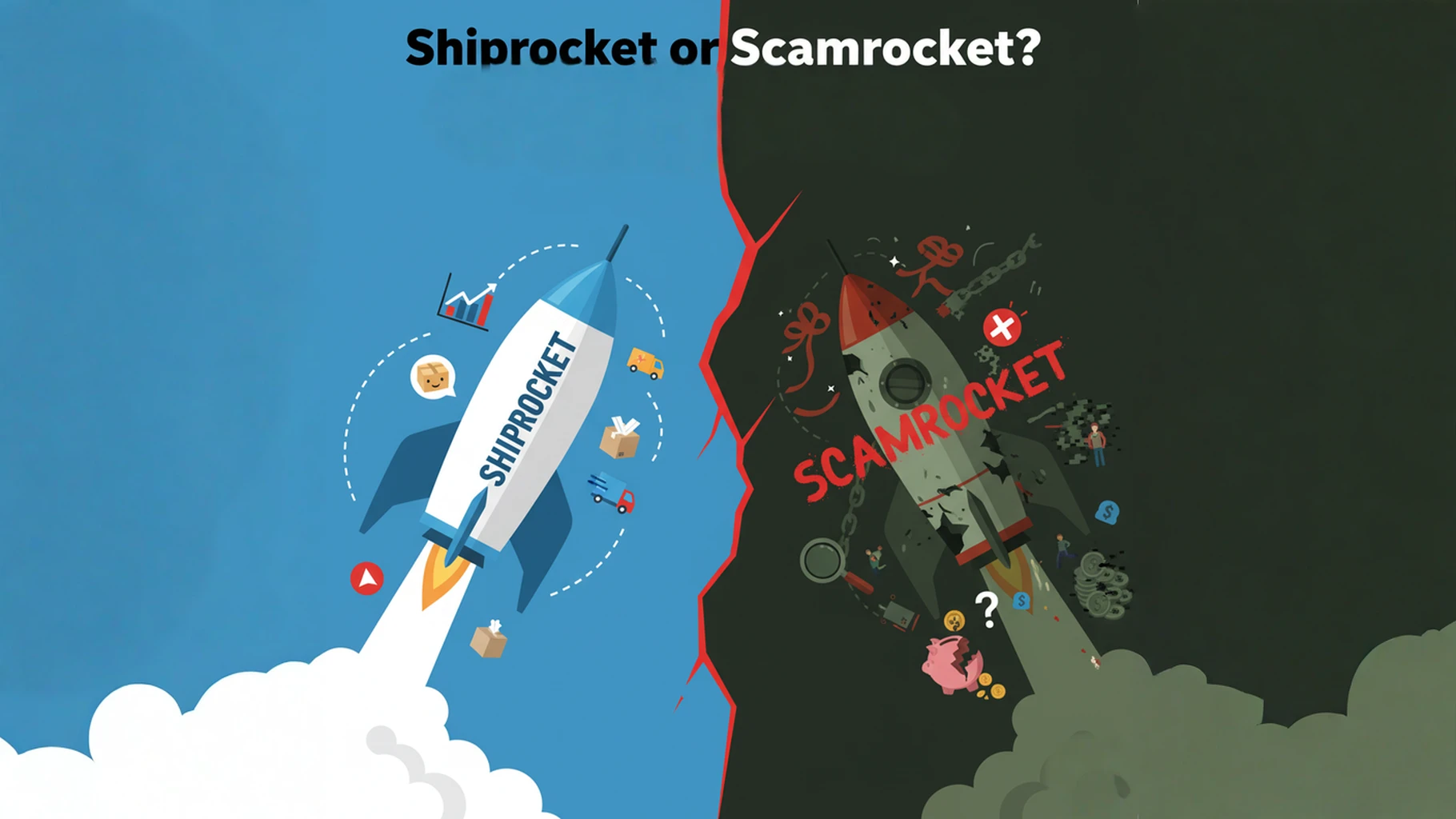New Delhi, September 2025 — Shiprocket, one of India’s leading logistics aggregators, is facing mounting criticism from small sellers, e-commerce entrepreneurs, and even customers of well-known brands. Once celebrated as a unicorn disrupting the logistics sector, it is now earning the nickname “Scamrocket” from frustrated users who allege systemic exploitation, ranging from fake delivery attempts to fraudulent charges and withheld refunds.
Fake Delivery Attempts and Return-to-Origin Nightmares
One of the most common complaints against Shiprocket is that orders are marked as “delivery attempted” without any actual attempt made by the courier partner. Sellers claim that customers never receive calls or visits, but the platform still records the delivery as failed.
Such packages are then labeled as “Return-to-Origin” (RTO), causing sellers to lose both the shipping cost and valuable sales opportunities. For businesses dependent on thin margins, these false RTOs are financially devastating.
Weight Manipulation and Extra Charges
Another recurring allegation is that parcels are re-weighed after pickup and falsely shown to be heavier than declared. Sellers argue that even when they provide clear photographic proof of weight and packaging, Shiprocket ignores the evidence and imposes inflated charges.
Some entrepreneurs have publicly called this practice “daylight robbery”, saying it feels less like a mistake and more like a systematic revenue-generation tactic at the expense of small businesses.
Customer Support That Doesn’t Support
Across Trustpilot, Shopify forums, Reddit threads, and LinkedIn posts, users describe Shiprocket’s customer support as unresponsive and evasive. Complaints often go unanswered for weeks, tickets are closed without resolution, and escalation channels lead to automated responses.
For small sellers, who depend on timely support to keep their business afloat, this lack of accountability has become one of the biggest pain points.
Lost, Damaged, and Tampered Shipments
Beyond delivery attempts and weight issues, many sellers and customers allege tampering of shipments. Orders reportedly arrive with missing items, swapped products, or damaged packaging. In some cases, parcels marked as “delivered” never actually reach the customer.
Even when sellers file claims under Shiprocket’s so-called protection plans, they are often rejected on technicalities—such as “label not visible” in unboxing videos—making compensation nearly impossible.
COD (Cash on Delivery) Fraud Allegations
Shiprocket is also accused of mishandling COD transactions. Sellers allege that orders are falsely marked as “customer refused to pay,” even when the customer insists they were ready to complete payment. This not only causes financial loss but also damages brand credibility with buyers.
Celebrity-Backed Brands Not Immune
While most complaints come from small businesses, even celebrity-associated brands have indirectly faced issues through Shiprocket’s services. The company boasts of partnerships with big names such as Mamaearth, Boat, mCaffeine, Sugar, Relaxo, Da Milano, Cureveda, and StarStruck by Sunny Leone.
In 2023, a massive fire at a Shiprocket warehouse in Bhiwandi destroyed goods worth crores, affecting over 60 brands—including high-profile names like mCaffeine and Sugar Cosmetics. Though the incident was not necessarily a scam, it highlighted operational risks that even well-funded, celebrity-endorsed companies face when relying on Shiprocket’s infrastructure.
For smaller sellers, the takeaway was clear: if such high-profile brands are not immune to losses and service failures, the risks for independent entrepreneurs are even greater.
Why Customers Call It a “Scam”
The word “scam” is strong, but many sellers feel justified in using it because the problems appear systemic, repetitive, and financially one-sided:
-
- Delivery attempt fraud leads to RTO costs borne by sellers.
-
- Weight discrepancies inflate shipping charges in Shiprocket’s favor.
-
- Claim rejections ensure refunds are rarely approved.
-
- Unresponsive support leaves sellers helpless.
To affected users, these patterns feel less like isolated operational errors and more like a built-in system designed to maximize profit while offloading risk to customers.
The Bigger Risk Ahead
As Shiprocket prepares for an IPO, these unresolved issues could become a major liability. Investors are increasingly wary of startups with high complaint ratios, especially in consumer-facing sectors where reputation drives trust.
If allegations of scam-like practices gain more traction, regulatory bodies and consumer courts may also step in, potentially derailing growth plans.
Conclusion: A Growing Trust Deficit
Shiprocket once symbolized hope for India’s digital sellers, offering affordable shipping solutions for small and medium businesses. But today, the growing volume of complaints paints a very different picture.
While celebrity-backed brands may have the resources to absorb losses, small sellers—the backbone of India’s digital commerce—are the ones most devastated. Unless Shiprocket takes urgent steps to restore transparency, improve accountability, and genuinely support its users, the label “Scamrocket” may overshadow its unicorn status.
Disclaimer: This article is based on information available from public sources. It has not been reported by EQMint journalists. EQMint has compiled and presented the content for informational purposes only and does not guarantee its accuracy or completeness. Readers are advised to verify details independently before relying on them.





